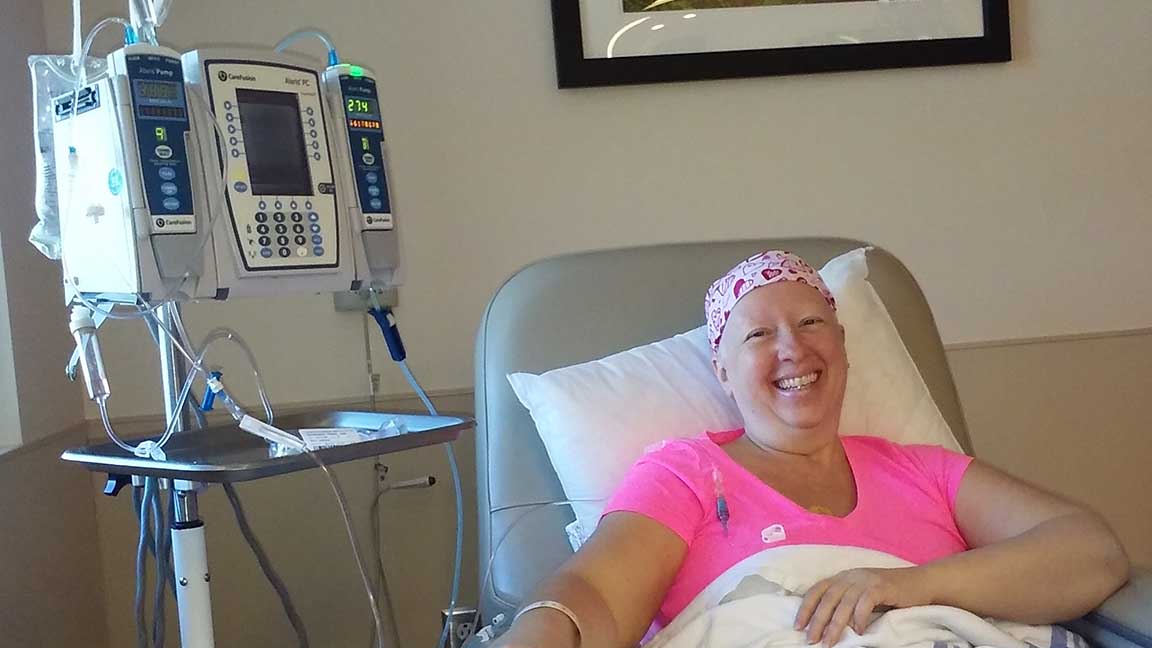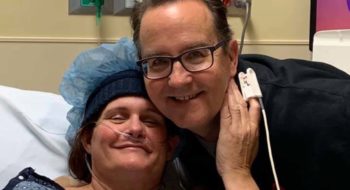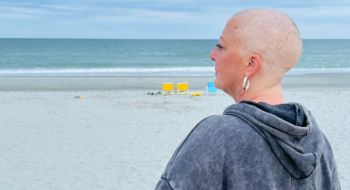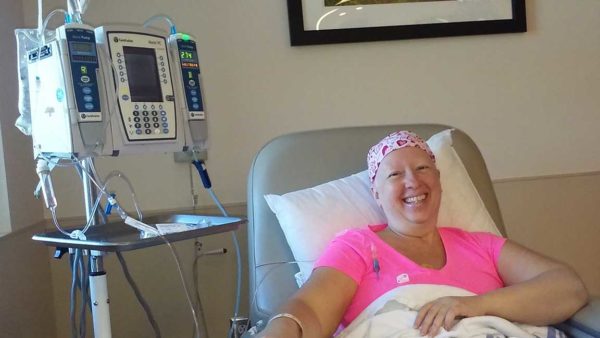It’s a longstanding tradition for Tidelands Health cancer patients to ring a bell celebrating the completion of their chemotherapy treatments.
At the end of her battle with breast cancer, Myrtle Beach resident Tammy Moormann was more than happy to oblige.
“I rang the bell so hard the little clapper fell out,” says Moormann, who was treated through the Tideland Health Cancer Care Network, our region’s most comprehensive provider of cancer care and a collaboration with MUSC Health. “Ringing the bell was huge for me – I felt like I earned it.”
A frightening discovery
Moormann, 51, was at a routine checkup with her OB-GYN in August 2016 when her physician noticed something unusual.
“My doctor felt a pretty decent-sized lump on my left side,” says Moormann. “She said, ‘I don’t like that. Before you leave this office, I’m going to set you up for a mammogram.’”
The results were frightening. Moormann, the married mother of a 14-year-old daughter, learned she had breast cancer.
“After I got the results, I got in my car and I lost it,” says Moormann who was referred for treatment to Tidelands Health breast surgeon Dr. Craig Brackett, who practices at Tidelands Health Breast Center, our region’s only surgical practice dedicated solely to breast health.
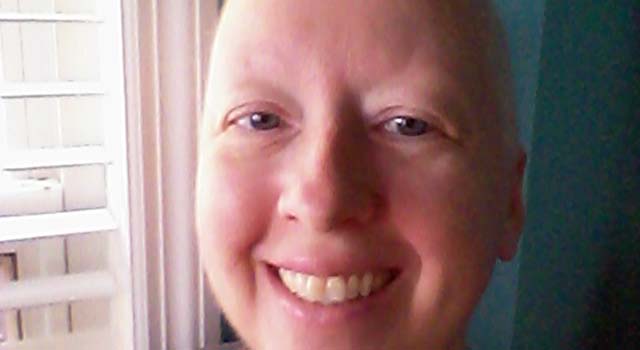
Losing her hair was one of the most difficult parts of Tammy Moormann's battle with breast cancer.
After undergoing an MRI to more clearly define the type and size of tumor in her left breast, she met with Dr. Brackett, medical director of the Tidelands Health breast health program, to explore her options.
“He goes over everything with you so that you understand what’s happening,” she says.
Moormann underwent successful surgery with Dr. Brackett followed by five weeks of radiation therapy and 20 weeks of chemotherapy.
Through it all, she tried to stay upbeat and carry on with daily activities.
“I tried to keep it as normal as possible,” she says. “I took my daughter to the bus and met her at the bus after school every day.”
She allowed herself to cry on occasion, but tried to limit herself to 10 minutes.
“It’s too easy to climb into bed and not want to get out,” she says.
Tremendous support
As she dealt with the emotional trauma of battling cancer, Moormann found a tremendous amount of support from her family and care team. Being able to receive all her care at Tidelands Health Cancer Care Network at Murrells Inlet was convenient and comforting, she says.
“I loved the convenience of having all the doctors, chemo and radiation all in one place,” she says. “It makes receiving care and support so much easier for the patient.”
Moormann says undergoing chemotherapy and losing her hair were probably the most difficult parts of her journey. The physical change was hard to handle because it signaled to others she was sick.
“To me, it was like, ‘Oh, I can’t hide it anymore,'” says Moormann, who wore bandannas and occasionally a wig. “The world knows.”
Moormann also began experiencing chemotherapy-related pain and stiffness in her legs and in a finger on her right hand, which was relieved through successful surgery by Tidelands Health orthopedic surgeon Dr. Jesse Lewis, who specializes in the hand and upper extremities.
“After that, I didn’t have the constant pain and stiffness, and it didn’t lock anymore,” Moormann says.
Throughout her journey, she says Dr. Brackett made everything easier by being so accessible and thoughtful.
“I always felt that he was truly looking out for my well-being,” she says. “He’s very genuine and passionate about what he does.”
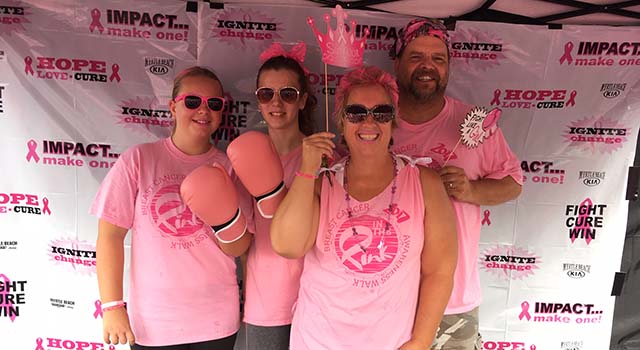
Tammy Moormann, second from right, at the Tidelands Health Foundation's 2017 "In the Pink" Breast Cancer Awareness Walk.
Dr. Brackett says maintaining open lines of communication with his patients is a top priority. Not only can patients reach out to Dr. Brackett, they also have ready access to a Tidelands Health cancer care navigator.
Navigators are available to all Tidelands Health cancer care patients and provide education, care coordination and support throughout a patient’s cancer care journey.
“When a patient receives a cancer diagnosis, we want to be there for them at every step along the way,” Dr. Brackett says. “We want to be available as they go through chemo, radiation and surgery.”
Dr. Brackett says attitude is important in the battle against cancer and credits Moormann’s positive approach with helping her beat the disease.
“Tammy was a joy,” he says. “She was a trooper. As physicians, we have to do our work right, but a patient’s attitude is everything.”
'Meant to be'
The week Moormann was slated to finish chemotherapy she was sorting through some items at home and came across a brass bell engraved with angels. She decided to donate it to Tidelands Health, and it was the one she rang to celebrate the completion of her chemotherapy treatments.
Though the clapper fell out as it sounded, the bell was easily fixed and continues to be rung by other patients as they complete chemotherapy.
“It seemed like it was meant to be,” she says. “I found a special place for it there, and now it is a permanent fixture.”
